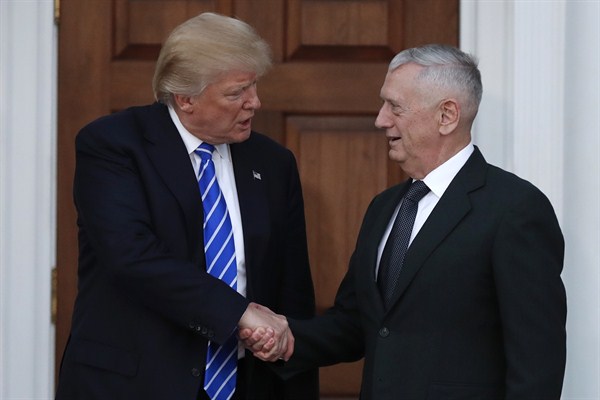The one-year anniversary of the Iran nuclear agreement’s implementation on Monday—combined with Senate confirmation hearings for President-elect Donald Trump’s Cabinet nominees last week and the death of former Iranian President Akbar Hashemi Rafsanjani on Jan. 8—has put Iran back in the spotlight.
In their congressional testimony, Trump’s nominees for foreign policy and national security posts offered a range of views about the nuclear agreement and the larger problem of Iran for U.S. national interests. At the same time, Iranians are debating the implications for Iran’s foreign policy of Rafsanjiani’s final exit from the political stage. While the net effect of these new dynamics is not yet clear, the trend line is troubling—if not necessarily catastrophic.
The new administration seems poised for early activism on its national security priorities. The views of Trump’s Cabinet nominees, however, do not suggest an easy consensus about how to transition from the president-elect’s brash campaign promises—to cancel the Iran nuclear agreement, for example—to the messy world of less-than-ideal policy options. How the new administration signals its intentions regarding Iran will in turn affect Iran’s leaders, who are mostly focused on their own domestic politics in the run-up to a presidential election later this year.

